A Story: Finding Out Why a Two-Year-Old is Exhausted
Learning about an Exhausted Child the Parental Intelligence Way
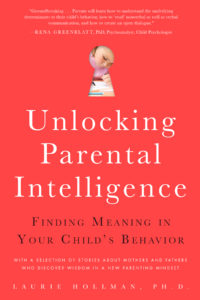
Cal
Two-year-old Cal is curled up sound asleep on the couch at five o’clock in the afternoon when his mother returns from work. This is the second time this week she’s discovering him in a deep sleep at this odd time of day.
He usually races to greet her when she arrives home from work. She is not only disappointed in missing the warm hug hello, but concerned and worried that he’s oversleeping.
Daria, the child-minder, Cal’s mother has come to rely on since she went back to work when Cal was four months old, assures her that he has had his nap, played happily during the day, and she, too, finds this exhaustion bewildering.
The Five Steps of Parental Intelligence Lead to the Resolution of a Two-Year-Old’s Exhaustion
Strongly committed to using the five steps of Parental Intelligence, Cal’s mother quickly turns to
Step 1: Stepping Back
This means she pauses without reacting quickly to consider the major premise of Parental Intelligence that a child’s behavior has meaning.
She attempts to experience her wide range of emotions without taking immediate action. If she didn’t pause, but rushed to awaken her son without suspending judgment, he might see her panic and become unnecessarily distressed.
Instead she thinks back to the last few days to review his sleep pattern. He is easily falling asleep at about 7:30 at night after she reads his bedtime story. He’s awakening at 6:30 when the child-minder arrives, and they share breakfast together starting off a peaceful day.
She’s been leaving for work at her usual time, 7:30 A.M., although she realizes now he’s been a bit clingy which is unusual because he adores and loves his child-minder. Cal’s father also shares their breakfast and leaves at the same time.
Except for the clinging to her she doesn’t think of anything else unusual. She awakens Cal gently with a warm hug and kiss, and he smiles returning the hug.
Before the child-minder leaves for the day, she notices that Cal kind of gives her a cold shoulder not her usual kiss good-bye. This stays in Cal’s mother’s mind and she can see Daria give her a look that suggests she’s concerned, too.
That evening, however, Cal goes to sleep as usual, the extra nap not disturbing his routine.
Step 2: Self-Reflecting
Self-reflecting permits Cal’s mother to muse about how her past affects her present approach to Cal.
It allows her to think about her own past and search for the genesis of her feelings, motives, and actions in both present and previous relationships.
When she mentions her concerns about Cal’s sleepiness, her husband at first brushes it off, saying sometimes kids just need extra sleep.
However, Cal’s father like her mother recalls that self-reflecting is a discovery process and looking a little deeper into his feelings he realizes he, too, is puzzled by this behavior.

However, he knows he is more detached from Cal than his wife. Originally, he hadn’t wanted to adopt a child, but his love for his wife and her needs superseded his reluctance. He carefully admits to her these initial feelings which leads them to recall Cal’s entrance to their family.
Reflecting on Cal’s Background
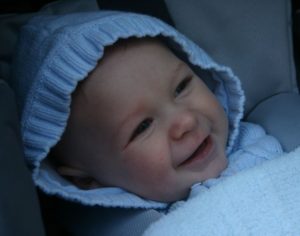
Cal was adopted at birth. His biological mother was to give him up immediately but insisted at the last second to hold and feed him perhaps forming a bond that was deep inside of Cal. Cal’s parents always wondered about that. But he bonded in the first few months especially with his mother and they forgot about that transition until now.
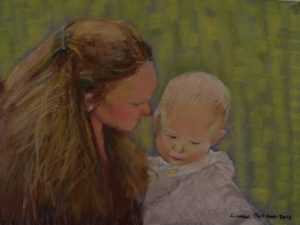
More Self-Reflecting
Self-reflecting often leads to thoughts about one’s own upbringing but for Cal’s parents that wasn’t the case. They both had enough nurturance which was why they wanted to give the same to their son.
Step 3: Understanding Your Child’s Mind
They continued talking and began Step 3: Understanding Your Child’s Mind and reviewed more of his birth history.
He was an easy baby while his mother was on maternity leave and his father participated more at a distance. When it was time to return to work, they were delighted to find the experienced child-minder, Daria.
The father had returned to work after a few weeks, but the mother stayed home for the first four months. During the last month of her time at home, she shared Cal’s care with Daria, so the transition could be as smooth as possible.
He did show signs of separation distress when she went to work the first few days, but then comfortably settled into a soothing routine with Daria.
So, what was going on now in Cal’s mother’s mind to lead to the extra afternoon sleep?
Cal’s mother had a light bulb go off as she realized she had not considered the effect on her son when Daria suddenly announced that she had to leave when he turned two. He didn’t react at first almost as if he was denying the implications.
Cal’s mother now realizes the importance this holds for Cal. It is simply too much for him to absorb.
She realizes he is withdrawing from his overwhelming feelings of loss. First, he lost his birth mother, then his adoptive mother goes back to work, and now he is losing Daria—much too much for a two-year-old to incorporate in his mind as possible and understandable.
So, he is sleeping away his excess emotions. He is in fact withdrawing from the change he is about to experience.
Step 4: Understanding Your Child’s Development
Cal’s parents realize that by age two loss of caretakers is immensely powerful.
His whole sense of security and trust has been thrown in disarray, and he can’t manage what is about to take place.
His emotions overwhelmed him, and he became clingy with his mother and withdrew into his five o’clock sleep. His cold shoulder to Daria, his trusted child-minder, suggests the anger that he feels at losing her that he can’t possibly express at his young age, so his action—exhaustion—reveals the meaning behind his behavior.

Step 5 : Problem Solving
Cal’s well-being is at stake.
His parents must face their essential task of creating yet another transition for his care.
Cal’s mother researched child care and found two wonderful women who cared for a small number of young children in one of their homes. She not only stayed with him at their home a few days, so he could get acclimated, she also decided to work from home two days a week, so she could spend more time with Cal on her own.
As one of the partners in her business she could make an executive decision, so Cal only had to stay with the new caretakers three days of the week.
He did develop separation anxiety at first crying sadly for several weeks when she had to leave him until he adjusted and found he could trust again. He even gave his mother the cold shoulder when she was leaving him at child care that he had given to Daria when she was leaving.
However, with these wise caretakers she didn’t pressure Cal and he slowly adapted to his new environment and care.
(For a more detailed account of this story read chapter 5 in Unlocking Parental Intelligence: Finding Meaning in Your Child’s Behavior.)
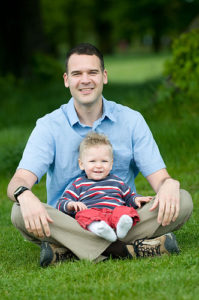
The Results of Using Parental Intelligence with a Previously Exhausted Child– Parent Bonding
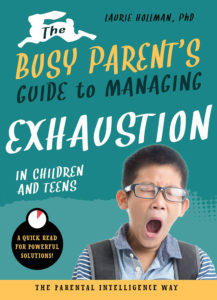
(photos are not actually of this child named Cal)